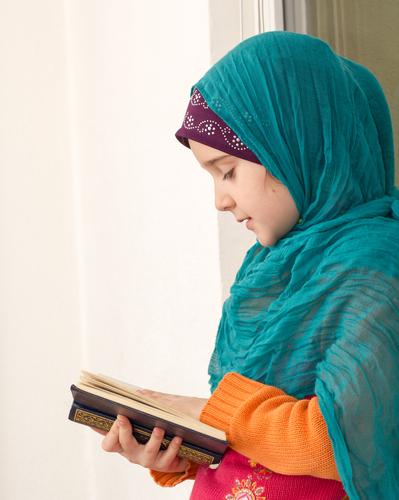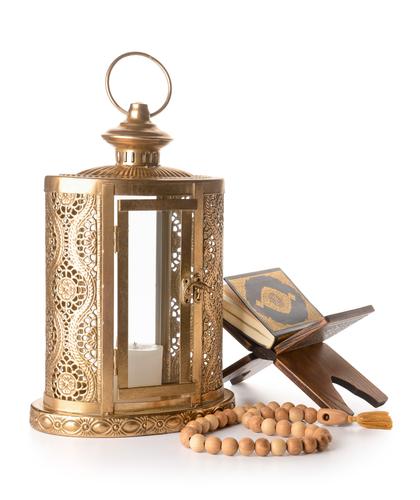
Ramadan is the ninth month of the Islamic calendar and the holiest month of the year because it is the time in which the Qur’an was first revealed to Prophet Muhammad (SAW) by Allah (SWT).
It is also the month in which Muslims have been obliged to fast. This means that it’s not permitted to drink or eat during daylight hours; however, the Ramadan fasting rules don’t solely apply to food. One should also take this time to refrain from impure thoughts and sinful behaviour, such as arguing. Ramadan should be treated as an opportunity to reflect on the teachings of the Qur’an and deepen one’s connection with Allah (SWT).
Understandably, not drinking water in Ramadan or eating for an entire day can sound quite challenging, leading many Muslims to wonder whether fasting for Ramadan is difficult. As a result, ILM is here to relieve your concerns and detail some of the benefits of fasting for Ramadan.
The only reason that Muslims fast during Ramadan is the fact that it’s a commandment from Allah (SWT). Quite simply, Allah (SWT) instructs Muslims to fast during this time, so devoted followers of Islam must adhere to this. However, fasting is also a means of becoming righteous as it’s said to sharpen the mind and cool passions whilst influencing us to feel grateful for all of Allah’s (SWT) blessings.
Similarly, fasting teaches us self-restraint, meaning we’re less likely to succumb to our urges and desires. Ultimately, fasting brings Muslims closer to Allah (SWT), which is what everyone should be striving toward in the long run.
As you can imagine, when it comes to navigating how to fast for Ramadan, you can’t simply not eat and drink. There are preparations and provisions that need to take place in aid of your fast. For example, you should eat a light meal (Suhur) ahead of dawn, followed by your Iftar once the sun sets. Similarly, you should drink plenty of water during the days leading up to Ramadan, as well as drink lots of water when the sun has set.
Another helpful tactic is to make is to start weaning your meals down as you approach Ramadan to prepare your body for the days without food. You could still stick to three meals a day on the build-up but cut out snacks and foods with a high content of sugar or white flour as they will lead to cravings later on.

Make sure what you’re eating is healthy, as this will slowly release energy rather than giving you a quick sugar rush that results in a crash.
On top of this, you might wake up earlier than you usually do in preparation for eating your Suhur prior to sunrise. Additionally, you might start scheduling naps into your daily routine as your body will be tired during the first few days of fasting, particularly because your sleep schedule will change.
Once Ramadan is underway, and you’re eating your Suhur each morning, following this, you should make Dua to Allah (SWT) and declare your intention to fast. Once He accepts your worship to Him, He can make the fast much easier for you. As well as this, you should regularly engage in worship and be sure to conserve your energy by not overworking and staying away from hot climates. It’s also important to keep yourself preoccupied and steer away from temptation.
Once the sun sets, you can eat your Iftar with your family. Although you may be very hungry, it’s vital that you don’t overindulge as this could harm your body. You should eat slowly and lightly before making your preparations for your fast for the following day.
Ramadan takes place across an entire month, wherein you’ll fast during all daylight hours of this month.

Not only does Ramadan fasting strengthen your connection with Allah (SWT), but there is also a multitude of health benefits that come alongside this. For instance, fasting can aid your physical health, weight loss, and digestion by encouraging better food choices and leading to a body detox. Not only does your physical health reap the benefits of not drinking water during Ramadan, but your endorphins, concentration, and mental health are also assisted by fasting. Essentially, fasting provides Muslims with the opportunity to reset themselves on a spiritual, emotional, and habitual level.
Now it’s clear what you should do in Ramadan, it’s always helpful to know what not to do during Ramadan fasting. Perhaps the most obvious rule is that you don’t drink or eat during daylight hours, but the restrictions don’t end there. On top of this, you should ensure that you don’t lose your patience, get violent, hold grudges, gossip, or waste time. Similarly, you should limit your interaction with social media platforms as they can act as a distraction to deepening your connection with Allah (SWT). After all, the intention of Ramadan is to develop a richer understanding of Islam and engage with the teachings of the Qur’an.
Typically speaking, the last 10 days of Ramadan will be the hardest as these are the most significant days of the month. As a result, Muslims engage in more worship, say more prayers, and recite the Qur’an in more depth. Additionally, this is the time in which many Muslims decide to perform good deeds, particularly on the Night of Power. Consequently, Muslims might find themselves growing more tired during this time, making following the practices more difficult.
So, the question still remains as to whether fasting is difficult. Well, with the correct provisions in place, you can alleviate some of the struggles that Ramadan presents. With this being said, some days will still be harder than others, especially at the beginning and end of the month. However, if you do find yourself struggling, it’s important to remind yourself why you’re fasting and how this will benefit you in a religious capacity.
You can support us in making a difference this Ramadan by donating online.